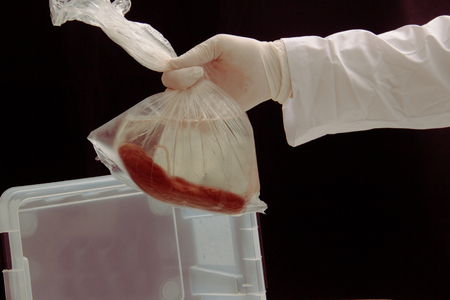
INQUIRER.net stock photo
Indonesians who are in need of money and kidneys are resorting to Facebook and other social media platforms to engage in organ transactions.
Around 150,000 Indonesians are suffering from kidney failure, as reported by ABC on Sunday, Oct. 14. Since Indonesia has a very low organ donation rate according to the Global Observatory on Donation and Transplantation, and as kidney failure is the second largest cost to Indonesia’s healthcare system after heart disease, Indonesian patients and impoverished sellers are resorting to social media for illegal organ transactions.
“It’s easy to get offers of commercial kidney organs on the internet, there are even certain groups of kidney donor brokers on social media,” the Indonesian Dialysis Community (KPCDI) chairman Tony Samosir told ABC.
The price for kidneys sold via social media ranges from $9,270 (around P500,300) to $32,430 (about P1.7 million).
“It’s like general trade, people openly sell their kidneys to pay off debts, medical expenses, start a business,” he added. “No money, no kidney.”
More than 30 Facebook accounts were found to be mediating the organ buying and selling, the report said. Some pages go as far as to feature kidney auctions for buyer and sellers to participate in.
The sellers have various reasons as to why they want to sell their kidneys online — but it all boils down to one thing: the need for money.
“I’m 19 years old and I really need money to cover medical treatment for my dad who had a stroke,” one seller wrote on Facebook, the report cited. “My mom is also sick and we need to pay our debt. Please help us by buying my kidney.”
“I really want to make my wife and my daughter happy so they can buy things, so please help me,” said another post in the report. “Even if I have to die, I don’t mind as long as they are happy. Please contact me.”
Samosir said KPCDI is lobbying for a National Transplant Committee, which will encourage kidney donations to be put in place, the report stated. Indonesian lawmakers have also been apparently pondering on establishing an “opt-out” system, wherein organs can be harvested from anyone who is not registered as a non-donor.
“In the Philippines, if there are accident victims, unidentified bodies or victims of crime, within six hours doctors can take their corneas without needing approval because of their opt-out system,” Indonesia’s Eye Bank Institution head Tjahjono Gondowiardjo was quoted as saying. “In Singapore also, all their citizens are organ donors unless they object or opt-out. We don’t have such a law.”
Under RA 7885 or the Act to Advance Corneal Transplantation in the Philippines, the physician, head or designated officer of the hospital, or the medico-legal officer of any government agency which has custody of the body of the deceased classified as accident, trauma, or other medico-legal cases, may authorize “the removal of the cornea or corneas of the decedent within 12 hours after death and upon the request of qualified legatees or donees for the sole purpose of transplantation.”
In the absence of qualified persons who may execute a donation, the said authorities may authorize the removal of the corneas provided they exerted reasonable efforts, within forty-eight (48) hours, to locate the nearest relative of the decedent.
Indonesian health ministry spokesman Budi Sampurno, on the other hand, believes the “opt-out” system is not applicable for Indonesia. However, the people’s plea did not fall on deaf ears as a new donor registry system will be established soon.
“A hard opt-out system that presumes all their citizen to have consented to organ donation regardless of their or their family’s wishes can actually be considered violating human rights, and it is only applied by autocratic countries such as Singapore,” he noted. Kate Matriano/JB
RELATED STORIES:
New lease on life for 5 people, thanks to organ donation
Sri Lankan war widows selling kidneys to pay for loans — UN expert